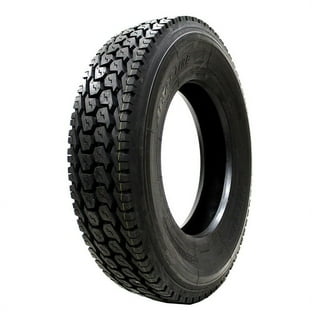Find the Best Tires Morris IL: Extensive Option Offered
Tire Service: Comprehending Tire Stress Monitoring Equipments
Understanding Tire Pressure Tracking Equipments (TPMS) is a crucial facet of preserving optimum car efficiency and security on the roadway. With improvements in automobile technology, TPMS has come to be a common feature in modern lorries, supplying real-time information on tire pressure degrees.

Importance of TPMS
The importance of Tire Pressure Surveillance Systems (TPMS) hinges on their capacity to boost automobile security and efficiency with real-time surveillance of tire stress degrees. Maintaining the appropriate tire pressure is essential for ensuring optimal handling, braking, and total security of a lorry. TPMS gives drivers with immediate comments on any overinflated or underinflated tires, permitting timely changes to be made.
Parts of TPMS
Sensors are usually located in the tire shutoff stem or attached to the wheel setting up, where they gauge tire pressure and transmit data to the control component. Some advanced TPMS versions additionally present the real tire pressure analyses for each tire, supplying vehicle drivers with real-time info to make sure optimum tire performance and security. By checking tire stress continually, TPMS helps avoid accidents, minimizes tire wear, and enhances gas effectiveness, making it an essential element for vehicle security and performance. tires morris il.
Kinds Of TPMS

On the various other hand, indirect TPMS relies upon the vehicle's wheel speed sensing units to check tire pressure. This system finds underinflation by comparing the rotational speeds of the wheels. Indirect TPMS is much less pricey than direct TPMS, as it uses existing sensors within the automobile.
While straight TPMS offers more exact analyses, indirect TPMS is less complex in design and typically calls for much less maintenance. Both systems have their benefits and restrictions, and the selection between them commonly depends upon factors such as expense, vehicle make, and personal choice. Understanding the differences in between these 2 kinds of TPMS can assist lorry owners make informed decisions pertaining to tire upkeep and safety and security.
TPMS Upkeep Tips
Efficient maintenance of TPMS is necessary for making certain optimum efficiency and security of your vehicle. Routinely evaluating the TPMS sensing units for any kind of damages or corrosion is important. Guarantee that the sensing units are tidy and free from particles that might interfere with their performance. In addition, it is suggested to check the sensor batteries periodically and change them as needed to assure accurate analyses. Conduct routine checks on the tire pressure degrees and contrast them with the TPMS readings to guarantee they correspond. If there are any discrepancies, recalibrate the system adhering to the producer's standards. Moreover, during tire turning or replacement, make sure that the TPMS why not try this out parts are dealt with thoroughly browse around here to stop any type of possible damage. If the TPMS advising light illuminates on the control panel, address the issue immediately by examining the tire pressures and the general system for any type of mistakes. By sticking to these upkeep suggestions, you can extend the life-span of your TPMS and boost the safety of your driving experience.
Advantages of Appropriate Tire Pressure
Preserving appropriate tire pressure, as emphasized in TPMS Upkeep Tips, is vital for reaping the countless benefits related to ideal tire pressure degrees. One of the main advantages of keeping the right tire pressure is improved fuel efficiency. When tires are properly blown up, there is much less rolling resistance, resulting in better gas economy. In addition, proper tire pressure guarantees even tire wear, prolonging the life-span of the tires and promoting more secure driving problems. With the best tire pressure, vehicles likewise have better handling and grip, especially in damaging weather condition conditions. This can boost general driving efficiency and security for the chauffeur and passengers. Keeping optimal tire stress can contribute to a smoother and extra comfortable ride by lowering vibrations and sound caused by underinflated tires. In verdict, the benefits of correct tire pressure surpass just tire longevity; they incorporate improved gas performance, boosted safety and security, much better vehicle efficiency, and general driving convenience.
Conclusion
In final thought, understanding tire pressure tracking systems (TPMS) is essential for preserving optimum tire stress and making sure vehicle security. By acknowledging the importance of TPMS, recognizing with its parts, knowing the different kinds available, adhering to appropriate upkeep tips, and understanding the benefits of keeping proper tire stress, drivers can boost their driving experience and prolong the lifespan of their tires. Appropriate tire pressure is crucial to reliable and safe more information vehicle operation.
